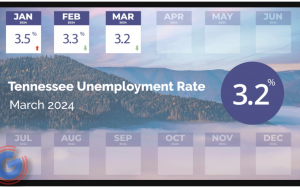January 1st 2018, your Assessor's Office will equalize and bring to market value all properties within Rutherford County.
Rutherford County Property Assessor Rob Mitchell confirmed that home values and property values are going up. He said in an email that increased value can be a double edged sword. In other words, some will enjoy higher property values when selling, but others will not be overly excited while staying put and possibly paying an increased amount in property taxes.
Rutherford County performs a state mandated reappraisal every 4 years in order to bring property values to current market values. The best indicator of current market value is qualified (willing buyer and willing seller) prior year sales, which the Assessor's Office uses to determine reappraisal values.
The reappraisal process consists of 3 years of monitoring and review and value calculation in the 4th year. During the review period every parcel in the county is inspected to ensure the Property Assessor's records correctly reflect what is actually on the property. Records may be adjusted due to additions, new buildings, demolition or error correction. During the 4th year of reappraisal, properties are grouped together by property characteristics (size, quality and location). Recent sales within those groups are collected and analyzed. The information is reconciled and values are applied to each group.
After the values have been calculated and assigned, property owners are notified by mail of their new values. Once property owners receive their new Notice of Valuation they may then start the Appeal Process if they disagree with their new value.
Higher values during a reappraisal do not necessarily mean higher taxes. The law requires the counties and cities to re-examine property tax rates after a reappraisal to make sure higher taxable values do not automatically result in a tax increase. Known as the certified tax rate law or "truth-in-taxation", the law requires local governments to conduct public hearings before adopting a property tax rate that generates more taxes overall in a reappraisal year than were billed the year before at the previous year's lower values. If the new tax rate following a revaluation does not exceed the certified rate, the average tax bill may actually remain the same. If the property value increased as the result of the revaluation more than the average, the taxes may be somewhat higher, while if the value increased less than the average, the tax bill may actually be lower in a revaluation year compared to the year before.
Once a certified rate is calculated by the legislative body and chief executive of the tax jurisdiction, and reviewed by the State Board of Equalization, it is submitted to the jurisdiction's governing body for formal determination, usually for consideration with the budget. If the budget will require an increase above the certified rate (the revenue neutral rate), the governing body must publish notice of a public hearing on whether to exceed the certified rate and then may proceed to adopt an actual tax rate after the hearing. If the certified tax rate is exceeded, the jurisdiction must send the State Board of Equalization an affidavit of publication for the hearing notice, and a certified copy of the final tax rate ordinance or resolution.
Want to learn more?












